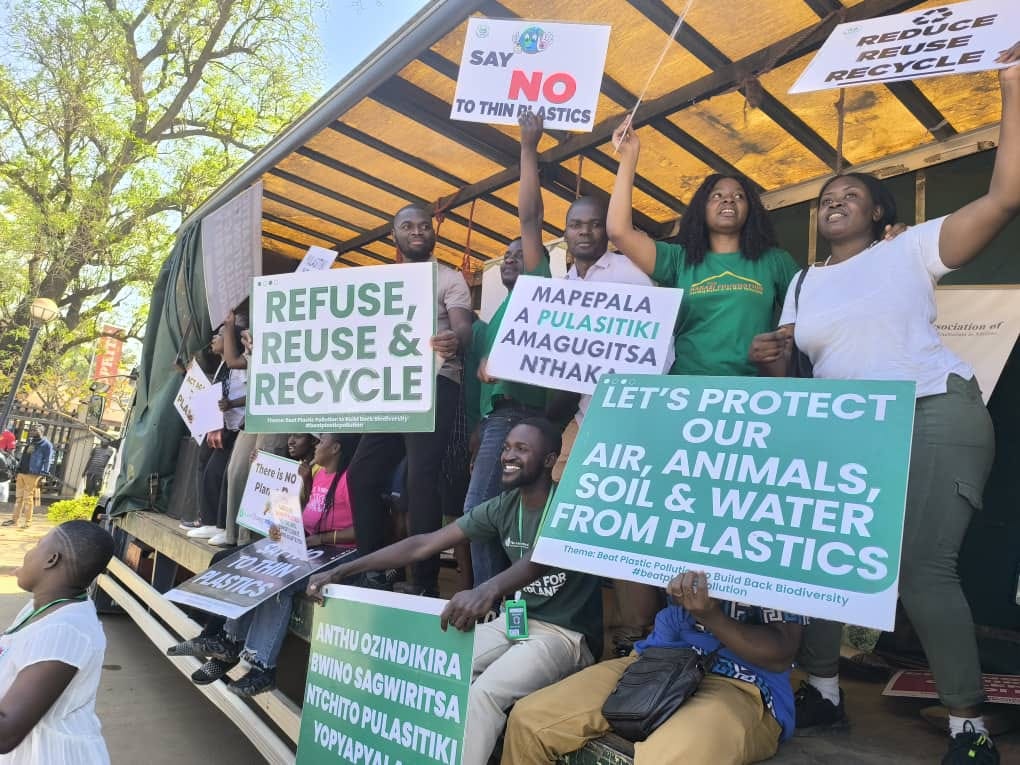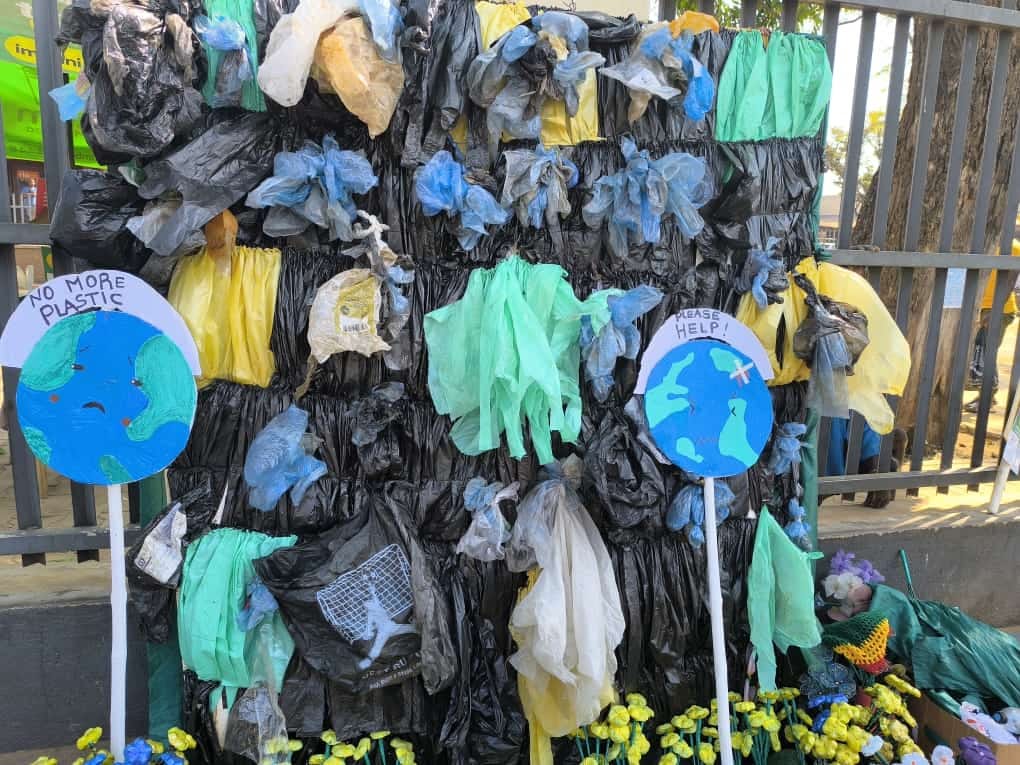Activists Demand Thin Plastic Ban at Lilongwe Environmental March
The activist outlined several environmental threats posed by thin plastics, including soil degradation, harm to livestock, and increased flooding due to blocked drainage systems.
LILONGWE, Malawi— The Civil Society Network on Climate Change (CISONECC) called for immediate action against thin plastics during a solidarity march in Lilongwe on Saturday, writes Tionge Hara.
Julius Ng'oma, National Coordinator for CISONECC, emphasized the urgency of the issue.
"We wanted to raise awareness to the general population in Lilongwe and across Malawi on the dangers of thin plastics," Ng'oma said.
The march, organized by the Association of Environmental Journalists (AEJ) and supported by the Malawi Defence Force, aimed to advocate for a ban on thin plastics and highlight their environmental impact.
Ng'oma expressed frustration with recent setbacks to plastic regulation efforts.
"A month ago, the Malawi Environment Protection Authority issued a ban on thin plastics," he explained.
"But a few days later, some companies ganged up to stop the ban."
The activist outlined several environmental threats posed by thin plastics, including soil degradation, harm to livestock, and increased flooding due to blocked drainage systems.
"These thin plastics take years to degrade in the environment," Ng'oma said.
"They cause harm to livestock, block drainages leading to flash flooding, and detract from the beauty of our cities."
The march, which began at the Lilongwe Community ground and ended at Game Shopping Complex, featured participants carrying placards with messages like "Say No to thin plastics" and "Stop environmental harm."
Ng'oma urged Malawians to support alternatives to thin plastics and called on manufacturers to find other business options.
He concluded with a clear message: "Let's say no to thin plastics. Those using them should stop, and those intending to buy them should not."
CISONECC, established in 2008, is a network organization coordinating civil society initiatives for climate change management and disaster risk reduction in Malawi.
It is registered with the government under the Trustees Incorporation Act, NGORA, and CONGOMA as a Non-Governmental Organization.




